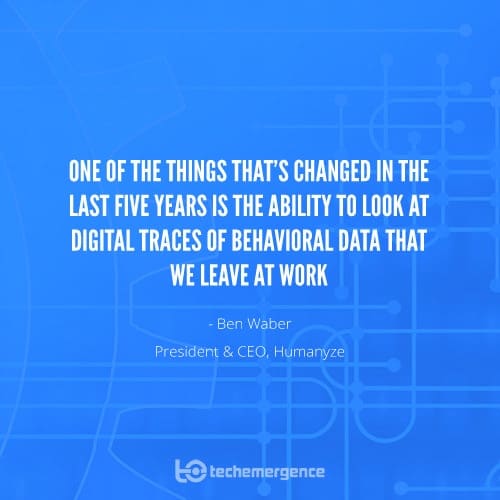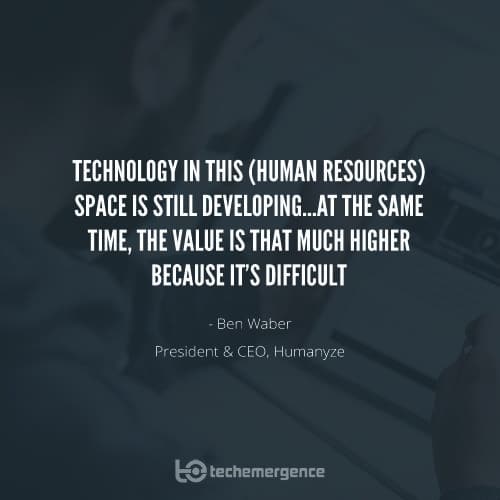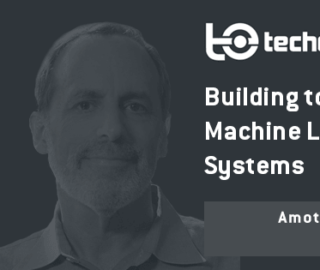
Episode Summary: When we think about applying AI and data science to different areas of business, we often think about those domains that offer a wide swath of quantitative metrics that we can feed a machine, like marketing or finance. Human resources (HR) normally doesn’t fit the bill. How we hired someone, how we felt about them when we hired them, how they perform qualitatively, these are things that are often difficult to discern in team dynamics. That being said, big teams like Google are applying machine learning (ML) to some of their HR choices, and our guest today believes more companies will be doing the same in future. CEO of Humanyze Ben Waber applies ML to HR decision-making, helping people get better employees and better performance by measuring and improving using data science in new ways.
Expertise: Big data and predictive analytics, organizational design and behavior
Recognition in Brief: Ben Waber, PhD is President and CEO of Humanyze, a behavioral analytics company. He received his BA and MA in Computer Science from Boston University in 2006. He is author of the book People Analytics. He is also a visiting scientist at the MIT Media Lab, where he received his PhD in the Human Dynamics Group. He was previously a Senior Researcher at Harvard Business School in the Organizational Behavior group. Before Humanyze, Ben consulted for industry leaders such as LG, McKinsey & Company, and Gartner on technology trends, social networks, and organizational design. His current research interests include dynamic organizational design, organizational behavior, social networks, sensor networks, prediction mechanisms, and information flow.
Current Affiliations: President and CEO of Humanyze, visiting scientist at MIT Media Lab

Interview Highlights
(1:43) 5 or 10 years ago, where was AI when it comes to Human Resources (HR)?
(5:08) Sounds like the last decade has been relatively sparse, maybe only in the last 5 years (starting with big spark of Google) have a handful of large companies begun to take AI predictive analytics seriously when it comes to HR matters.
(8:03) For someone’s job performance, someone’s attitude at work…we’re talking about developing new digital products; what has been the data that is now accessible that at one point was not?
(11:47) Sounds like here, in finance or other domains…there’s maybe less of the ‘getting your hands dirty creative process’ of (figuring out) which of these (metrics) correlate, what do we need to tie together to turn this into something that could be meaningful, it sounds like that is really the art here.
(15:33) What are the other data points that now, in your modern digital/Internet of Things business, we can pull in that add to this menage of varied data that we can then glean valuable insights from; what are the points that a business today can pull from for tangible HR data?
(19:05) There’s a lot of ways of looking at data…when it comes to why folks would actually use AI in the corporate setting for HR, what are the tangible ROIs of ‘we need to know these things and this is why this solution would really sink in’…what’s the ‘can’t live withouts’ that companies are dying to get their hands on, that’s getting them itching to apply AI here?
(22:49) Is it a lot of time the sexiest, most sizzling stuff building up a desire? Is it more sales-oriented across the board? Is it more team efficiency oriented? It is a bit of a spread? I’m interested in what the pie chart looks like of the most ‘burning desires’ that you are having to appeal to most to get companies on board.












